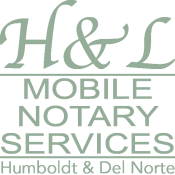Although your notary public may know what type of notarization you will need by the type of document being notarized or by the instructions on that document, it is helpful to understand what you are looking for. There are different types of notarizations you might need. Below is a list of some of the most common types of notarizations people require:
The Acknowledgement is a verification that the document in question was signed voluntarily by the signer and that the signer is who they say they are. The notary will need to see the signer in person, see an acceptable form of identification and ask the signer to acknowledge that the signature on the document is theirs and that they signed it willingly.
The Jurat can also be called an Affidavit, a Verification of Oath, or a Verification of Affirmation. The Jurat is a verification that the signer has sworn that the contents of a document are true either by oath or by affirmation. The notary public will need to see the signer in person, see an acceptable form of identification, ask the signer to take an oath or to swear that the contents are true, and witness the signature of the document by the signer.
The Oath or Affirmation is the verification by a notary public that the signer of a Jurat, an Affidavit, a Verification of Oath or a Verification of Affirmation has sworn to the truth of the document’s contents. The notary public will need to see the signer in person, see an acceptable form of identification and ask the signer to swear by Oath or Affirmation that the information in the document is true.
The Copy Certification is the verification by a notary public that the copy was taken from the original. In the State of California, only copies Powers of Attorney can be notarized by notaries public (California Probate Code 4307) as certified copies. The “document custodian” (the person in possession of the original document) takes the original to a notary public, the notary public makes a photocopy of the document then affixes a certification to the copy.
Signature Witnessing is used to verify that the notary public saw a signer sign a document other than an Acknowledgement (signature witnessing not required), a Jurat, an Affidavit, a Verification of Oath, or a Verification of Affirmation. In the state of California, this is used in conjunction with the use of one or two credible witnesses (see Credible Witness Criteria) when the signer does not have a valid ID. When using a credible witness, the witness or witnesses must have acceptable identification or they cannot be used as a credible witness.
